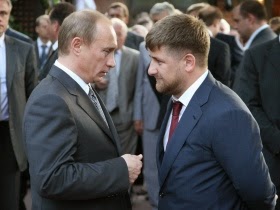By Valery Dzutsev
The newly re-established Agency for Nationalities Affairs (see EDM, April 6) should combat Russian isolationism, according to a leading expert on the Caucasus of the Russian Institute for Strategic Research (RISI), Yana Amelina. RISI had previously claimed responsibility for spearheading Russian policies in Ukraine (see EDM, January 20). Amelina writes that though Russian media coverage has been dominated by the Ukrainian conflict, once that topic loses steam, the favorite slogan of Russian nationalists—“Stop Feeding the Caucasus!”—will return to prominence.
However, Amelina points out that North Caucasians do not want to secede from Russia. This, she claims, is supported by evidence that Chechens and Ossetians were among the most ardent supporters of Russian separatists in Eastern Ukraine. North Ossetian historian Ruslan Bzarov explains this point to Amelina in an interview: “Without Crimea and the Caucasus, the Russian Empire–USSR–Russian Federation cannot exist in its current borders and retain the geopolitical meaning that is familiar to us. This is a historical fact that has no alternative.” North Ossetian mufti Hajimurat Gatsalov goes even further. In an interview with Amelina, he states that Russia “must bring under control the entire Caucasus,” especially the Black Sea and the Caspian Sea coasts. This suggests potential incursions into Georgia and Azerbaijan. According to Amelina, such attitudes are widespread across the North Caucasus (Sevkavinform.ru, April 9).
If the North Caucasians are so supportive of Russia and Russian territorial aggression abroad, it is unclear why so many Russian troops are stationed in the region. Even more puzzling is why North Caucasians are still deprived of the right to elect their own governors, while ethnically Russian regions are entrusted by Moscow to hold their own gubernatorial elections. Some natives of the North Caucasus, such as Bzarov and Gatsalov may have internalized the Russian state’s views to a certain extent, but this is yet to have an effect on Russia’s differential treatment of the region. Perhaps most importantly, Russian experts’ calls for the unity of ethnic Russians and ethnically non-Russian North Caucasians is most likely to sound hollow to Russian nationalists. Moscow may ignore and sideline ethnic non Russians, but it cannot ignore the opinion of ethnic Russians for long. As the economic downturn hits the country, nationalist slogans to do away with subsidies for the North Caucasus are likely to be reinvigorated, forcing North Caucasian supporters of Russian expansionism to review their positions.





